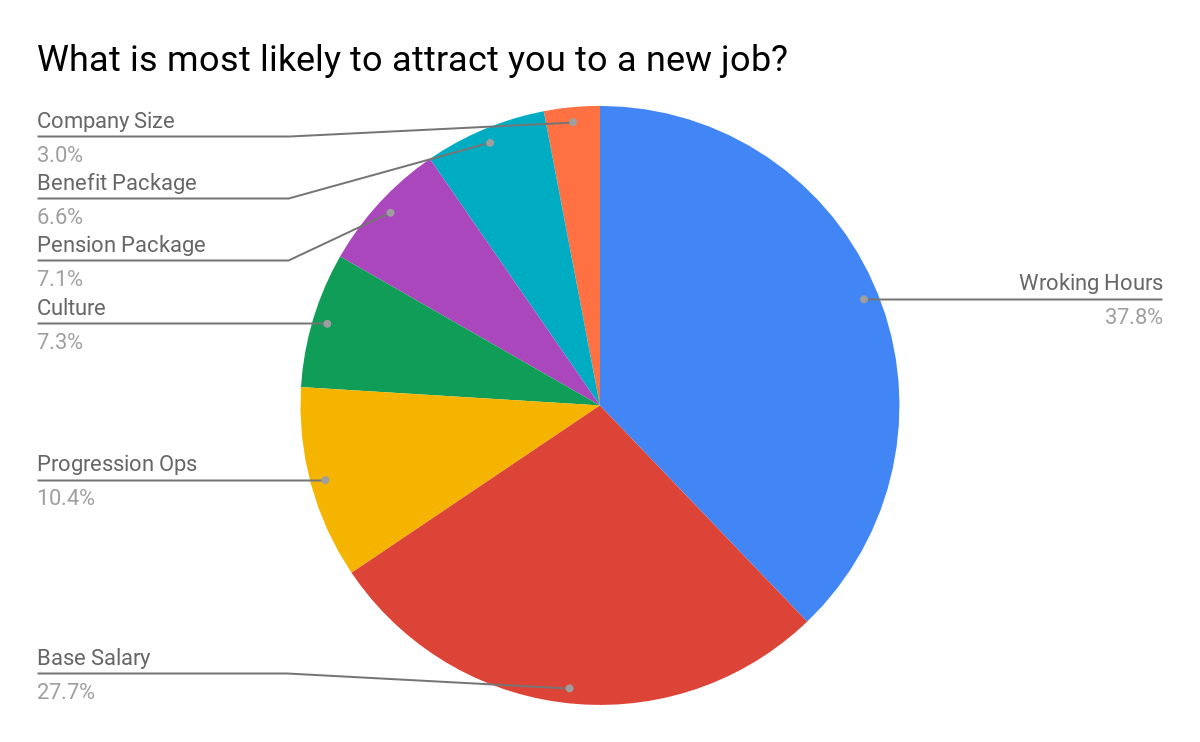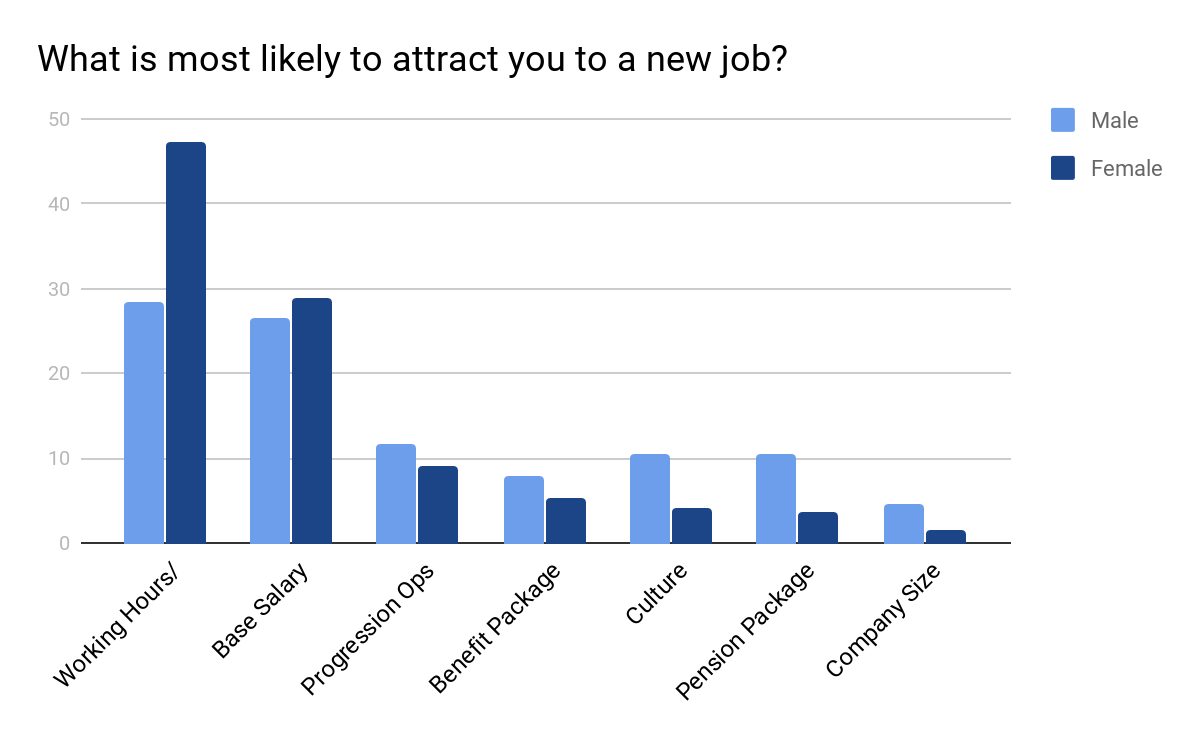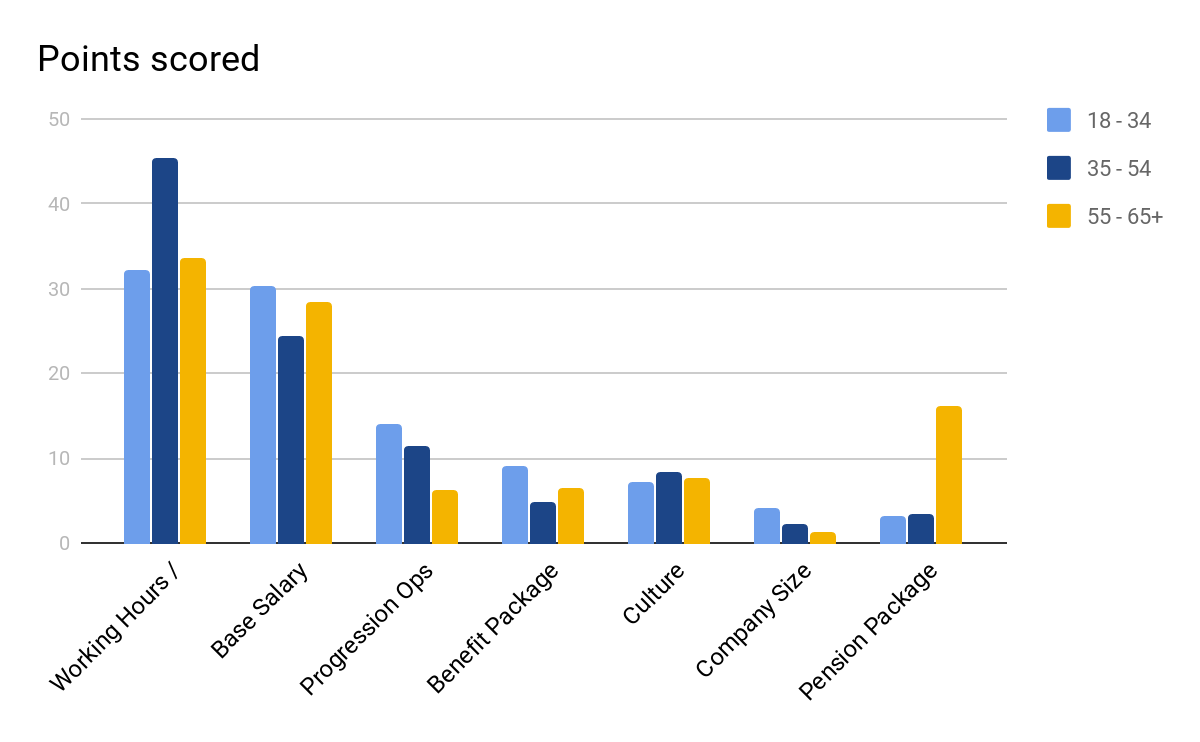
Flexible working hours are most likely to attract staff to a company, according to Glu Recruit’s recent national survey of the UK workforce.
The question “What is most likely to attract you to a new job” was asked to over 500 UK residents, aged 18+, with the results being as follows:
Overall Results
Surprisingly, monetary pull factors all lost out to the prospect of improved flexibility / working hours. Second in the survey was base salary, with these two being well clear of the remainder (as seen below).

Gender Results
Whilst largely following the same trends, the biggest note amongst gender results when compared to the overall results is flexibility.

Whilst a huge proportion of female respondents (47.3%) stated that flexibility was their main draw, this lowered to (28.3%) amongst the male respondents. Despite this, it was still the top result for both genders.
Age Breakdown
Interesting age related trends can be found in the results, summarised below:

- Working hours and flexibility become most important between the ages of 35-54.
- Progression opportunities become less important as ages get older. This is most popular amongst 18 – 34 year olds and least popular amongst 55+.
- Pension are generally not a draw until reaching the over 55 market.
What does this mean for employers?
Understanding the market is vital for employers, both to effectively retain staff and to attract new ones.
What’s more than that, when considering the productivity of your staff recent studies have found that a happy workforce is up to 20% more productive.
So for employers, as well as recruiters who advise them (like us here at Glu), it is vital to stand up and take note. If for nothing else than the important matters of:
- Attracting staff
- Retaining Staff
- Having a more productive workforce
So let’s explore these in more depth.
How Can These Results Be Used To Attract Staff?
The first place to start is well before even advertising the role itself, it starts with your internal discussions on what defines the role. Traditionally, this is where employers will start with salary and financial benefits. And whilst our results showed that this was important with almost 28% of the vote, it was a clear second to working hours and flexibility (38%).
So let’s say that this is where the biggest “pull” to your company will be, especially when adding in “culture” which brings the total vote to almost half of the people questioned (a little over 45%).
How flexible is “flexible”
Showing more flexibility in a role doesn’t necessarily mean an employer will have to make sweeping changes to their business. The main method which has been introduced is “flexi time”, which allows staff to start/finish later in a day (and in some cases take a day off), whilst ensuring that all of their contracted hours have been worked.
The benefits of flexi time are well documented, with the CIPD and HR Policy advisor at London’s School of Economics claiming that increased employee engagement and also better performance are expected from taking this approach, according to this Guardian Jobs article.
The Job Specification
A potential candidates first interaction with your job is likely to be through the job specification they see on the website of a recruitment agency like ours, a jobs board or your own website. Whichever method they use to see it, it’s important that it strikes the right chord.
There are fundamentals that are important to include in a job specification, which we have already covered in our specialist guide. You’ll also find a template there which you can use to make the process extremely simple.
What’s important in this piece, is establishing how these results can be used by employers to set themselves apart from the crowd. To this end, there are three main pull factors, listed in order:
- Working Hours/ Flexibility
- Salary
- Progression
Employers have traditionally used this to express monetary benefits, and whilst important, our survey clearly shows that now is the time to express your flexibility options. Our main advice for employers would be to make sure that in the first three bullet points, you make mention of a flexible benefit of the job. This could be the possibility of flexi time, early finishes on certain days, a childminding service / care benefits. It is ok to be creative in this regard, most jobs do actually have things in place pertaining to flexibility and, whatever they are, it’s important to showcase these.